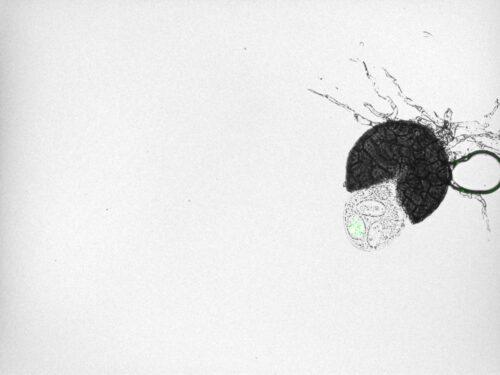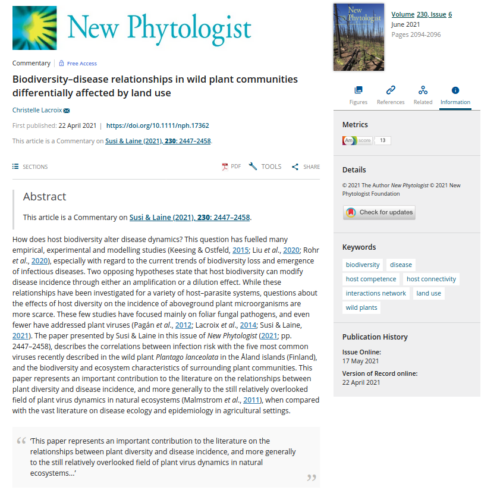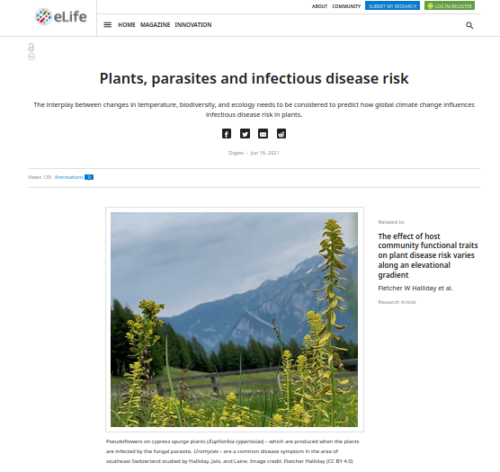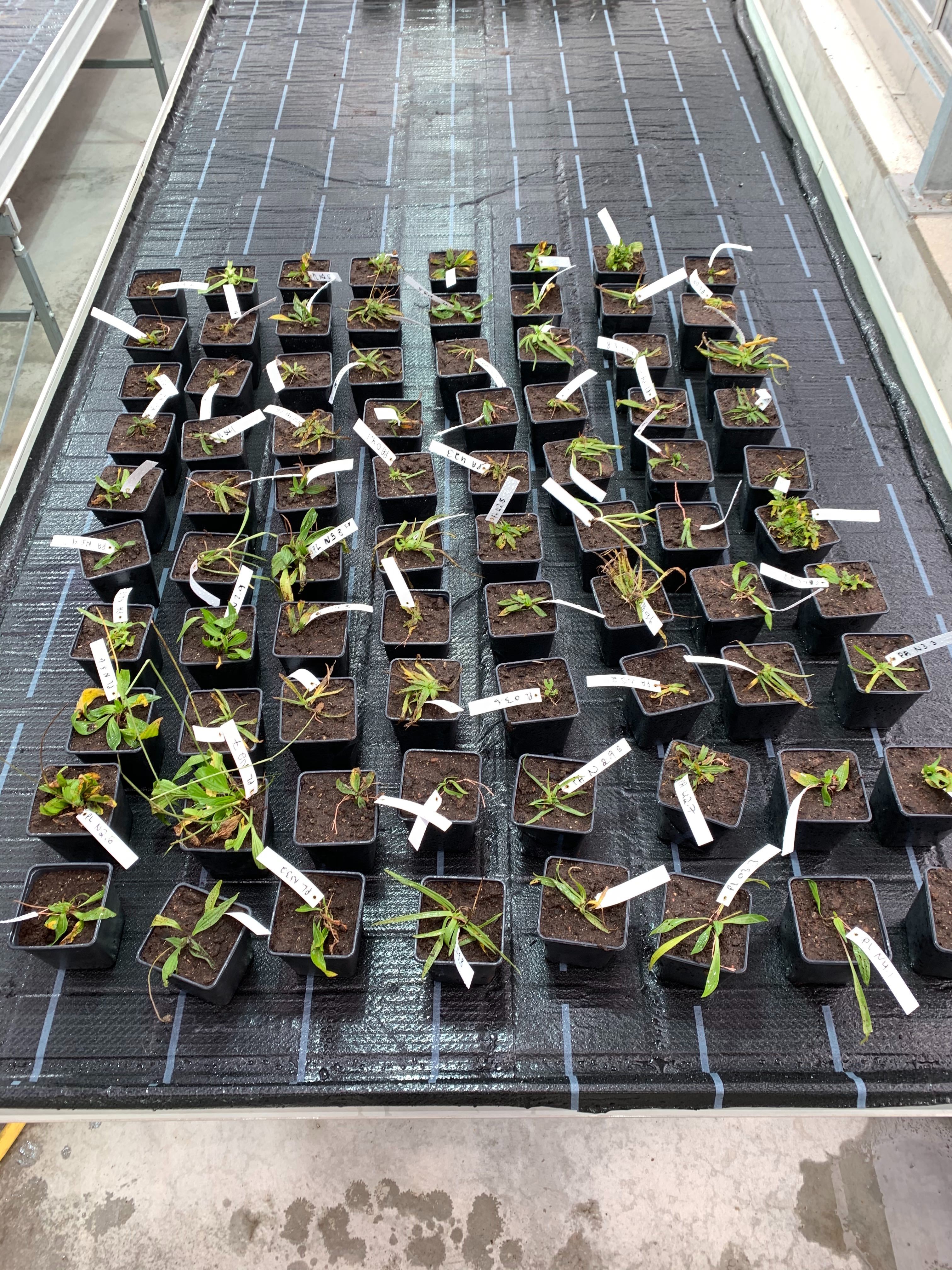
We usually have MSc and BSc thesis projects available. Feel free to contact any lab member for more information.
We are pleased to invite you to a one-day symposium titled Plant–Microbe Biodiversity under Global Change
Symposium will take place on 12 June 2025 at the University of Helsinki. You can find the program below.
There are a few open slots available for attendance. If you are interested in joining, please register via the form below by 29 May: https://elomake.helsinki.fi/lomakkeet/135307/lomake.html
Please note that once the available slots are filled, the form will be closed. We look forward to an exciting day of discussion on current research and emerging perspectives in plant–microbe interactions under global change.
PLANT-MICROBE BIODIVERSITY UNDER GLOBAL CHANGE
12 June 2025
University of Helsinki, Porthania, P673 (Yliopistokatu 3)
9:00-9:30 Anna-Liisa Laine (University of Helsinki): 25 years of plant–microbe Interaction research: Emerging insights and new frontiers
Session1: Community dynamics and biotic interactions across spatio-temporal scales (Chair: Krista Raveala)
9:30-9:45 Seraina Cappelli (University of Minnesota): Legacy effects shape plant community responses to consumer exclusion
9:45-10:00 Bastien Parisy (University of Helsinki): Cross taxa patterns of community composition and disease /herbivory intensity across elevation gradient
10:00-10:15 Elina Numminen (University of Helsinki): Modeling populations and how they change from long-term datasets – lessons and challenges
10:15-10:30 Fletcher Halliday (Oregon State University): Diversity and interactions of foliar pathogens in grassland ecosystems
10:30-11:00 Coffee
Session 2: Monitoring plant communities and biotic interactions in a changing world (Chair Fletcher Halliday)
11:00-11:15 Sonja Saine (University of Helsinki): Disturbance legacy shapes the relationship between plant diversity and damage risk
11:15-11:30 Tuuli Rissanen (University of Helsinki): Indicator species to monitor boreal plant communities
11:30-11:45 Andréa Davrinche (University of Helsinki): Functional diversity changes in Finnish forests’ understory
11:45-12:00 Rachel Penczykowski (Washington University in St. Louis): Plant disease dynamics in a warmer world: insights from Plantago and their powdery mildew pathogens
12:00-12:15 Jenalle Eck (Norwegian University of Science & Technology): Eco-evolutionary consequences of land use change in semi-natural grasslands
12:15-12:30 Mikko Tiusanen (ETH Zürich): Computer vision in monitoring flowering on Alpine meadows
12:30-13:45 Lunch
Session 3: Diversity & evolution (Chair Hanna Susi)
13:45-14:00 Charlotte Tollenaere (Institut de recherche pour le développement; IRD): Co-circulation of multiple pathogens and evolutionary consequences
14:00-14:15 Anita Bollmann-Giolai (Max Planck Institut for Biology, Tübingen): Inter-microbial interactions in the Pathobiome shape disease dynamics
14:15-14:30 Suvi Sallinen (University of Helsinki): Pest management effects on rat movement, parasite diversity and population genetics of Brown rat
14:30-14:45 Michael Rechsteiner (University of Zürich): How phenotypic plasticity and adaptation shape intraspecific trait variation and influence disease outcomes
14:45-15:00 Michael Giolai (University of Helsinki): The evolutionary underpinning of disease dynamics
15:00-15:30 Coffee
Session 4: Plants and microbes in agricultural environments (Chair Rachel Penczykowski)
15:30-15:45 Benoit Barrès (Anses, France): Monitoring pesticide resistance in a changing world
15:45-16:00 Hanna Susi (University of Helsinki): Agricultural biodiversity solutions – Measuring biodiversity in Finnish farms
16:00-16:15 Jean-Baptiste Floc’h (University of Helsinki): Plant leaf microbiome is affected by plant biodiversity but not carbon management practices
16:15-16:30 Paula Thitz (University of Helsinki): Applying biodiversity-ecosystem functioning principles to enhance agroecosystem biodiversity and functioning
16:30-16:45 Luiz Domeignoz Horta (Institut national de recherche pour l’agriculture, l’alimentation et l’environnement; INRAE): The role of plant diversity on soil organic carbon quantity and quality
16:45-17:00 Discussion
March 2024
We have a position open for a technician. Advertisement is in Finnish, but don’t hesitate to apply if you have at least some basic Finnish skills. You can write your application in English. Deadline is 4th of April.
April 2023
Significant ERC funding to project of “The Coevolutionary Consequences of Biodiversity Change”
Read the original news article here
November 2022
Link to the original advertisement.
Postdoctoral Researcher in the field of Ecology of Plant-Microbe Interactions for a two-year position
The University of Helsinki, founded in 1640, is one of the world’s leading universities for multidisciplinary research. The university has an international academic community of 40,000 students and staff members. The University of Helsinki offers comprehensive services to its employees, including occupational health care and health insurance, sports facilities, and opportunities for professional development. The International Staff Services office assists employees from abroad with their transition to work and life in Finland.
The Organismal and Evolutionary Biology Research Programme (OEB) of the Faculty of Biological and Environmental Sciences comprises roughly 40 research groups which employ 40 principal investigators and 120 researchers. The research programme is situated in the Viikki science park.
We are seeking a postdoctoral researcher to work in a consortium project aiming to understand how plant biodiversity could be integrated into our food production systems to develop sustainable and climate-smart farming practices. Specifically, we are addressing questions regarding how above-ground plant diversity links with below-ground microbial diversity, and how these jointly affect plant fitness, resistance and resilience to both biotic and abiotic stress using experimental approaches. The consortium joins expertise in agriculture, plant ecology, soil microbial ecology and climate science. It is an exciting interdisciplinary effort addressing cutting edge scientific questions with direct applicability.
Opportunities for professional development, e.g. in project management, leadership, mentoring, teaching and grant writing, are available and encouraged.
Postdoctoral position requirements:
- The successful applicant should have a doctoral degree in ecology, plant biology, microbial ecology or agricultural sciences (or similar)
- Previous experience working with questions and methods related to plant diversity, ecosystem functioning and ecology of plant associated microbes (mycorrhizae / plant pathogens etc.)
- Statistical knowledge: Expertise in Structural equation model and/or Joint Species distribution models is not necessary considered an advantage
- Previous experience in analysis of microbial community sequence data is not necessary but considered an advantage.
- Excellent written and verbal communication skills
- Ability to conceive, execute and complete research projects
- Ability to think independently and creatively
- Ability to work in a team and independently
Salary and how to apply for the position
The salary of the successful candidate will be based on level 5 of the demands level chart for teaching and research personnel in the salary system of Finnish universities. In addition, the appointee will be paid a salary component based on personal performance. The starting salary will be ca. 3400–3800 euros/month, depending on the appointee’s qualifications and experience.
Starting date in March 2023 but will be determined by mutual agreement. The position has funding for 2 years.
The application should include the following documents as a single pdf file:
• motivational letter outlining why you are the right person for this task (max 1 page)
• CV (max 2 pages)
• list of publications
Include also contact information of two persons who are willing to provide a reference letter by separate request. Please submit your application using the University of Helsinki Recruitment System via the link Apply for the position. Applicants who are employees of the University of Helsinki are requested to leave their application by using the employee login.
The deadline for submitting the application is 2 December 2022.
For more information, please contact Prof. Anna-Liisa Laine (anna-liisa.laine(at)helsinki.fi). For more information on the research group of Prof. Laine, please visit our website https://lainelab.net/ and for more information on the consortium, please visit https://carbonaction.org/en/front-page/.
If you need support with the recruitment system, please contact HR Coordinator Harri Hamara (harri.hamara(at)helsinki.fi).
March 2022
Update – Position filled! – Open position: Lab manager, Institute of Evolutionary Biology and Environmental
September 2021
Lab member awarded Ambizione Fellowship
Congratulations to Fletcher Halliday, whose research project titled “Disease risk under environmental change and biodiversity loss – causes and consequences” has been selected for funding under the Swiss National Science Foundation Ambizione Fellowship program.
The research project builds on Fletcher’s ongoing work in the Calanda Biodiversity Observatory, and will leverage a large scale observational survey and experimental manipulations to explore the role that host traits play in determining disease risk under biodiversity loss across environmental gradients.
September 2021
Open PhD position – filled
Understanding plant disease risk under environmental change and biodiversity loss
4-year PhD position in community ecology at the University of Zürich

Applications are invited for a 4-year PhD position to study biodiversity loss, environmental
change, and the community ecology of infectious diseases by combining experimental and
observational field approaches, using plants and their foliar pathogens as a model system.
Plant pathogens and their host plants often occur together in complex communities with
many interacting partners. These host and pathogen communities and ensuing host-
pathogen interactions often change predictably as habitats are disturbed and species are
lost. But how do these processes interact with changes in environmental conditions? One
possibility is that changing environmental conditions might affect these processes by altering
host traits related to growth, reproduction, and defense against enemies.
The aim of this PhD project is to study how changes in key host traits affect host
susceptibility to infection across an elevation gradient in Switzerland through a combination
of experiments and observational surveys. This project shares a research setting with a
study aimed at using mountain ecosystems to understand the interaction between
biodiversity and global change, which will provide students with an opportunity to interact
with researchers from a variety of backgrounds (and a beautiful backdrop for fieldwork).
Students with interest in disease ecology, community ecology, plant biology, or other related
fields are encouraged to apply. Prior expertise in trait-based approaches, experimental
design, statistical analysis, or basic molecular and disease diagnostic skills are a bonus, but
your most important assets are enthusiasm for research, motivation to learn new things, and
ability to work independently while being an active member of a research team.
The project is supervised by Dr. Fletcher Halliday in the research group of Prof. Anna-Liisa
Laine at the University of Zürich. The Laine lab has broad expertise in studying the
ecological and evolutionary dynamics of species interactions in natural populations (e.g.
Halliday et al. 2021 eLife, Laine et al. 2019 eLife, Sallinen et al. 2020 Nature
Communications).
To apply, please send a single PDF file merged from the following parts to
fletcher.halliday@ieu.uzh.ch: CV (with possible publications included), a copy of your
academic transcript records, contact details of two references (e.g. MSc thesis supervisor),
and a cover letter (MAX 1 page) with a description of your research interests and why you
would be a suitable candidate for the project. Please include the word “PhDDISEASE22” in
the subject line.
Applications will be considered until the position is filled. The position is available from
January 1, 2022. For more information, please visit https://fletcherhalliday.com/ or contact
fletcher.halliday@ieu.uzh.ch. The working language is English. German skills, although not
essential, are helpful. Zürich is a highly attractive city in beautiful surroundings, with a
multinational population, and many educational and recreational opportunities.
Highlighted in commentary in New Phytologist:
Biodiversity–disease relationships in wild plant communities differentially affected by land use
Read the full article here.
Based on: Susi, H. and Laine, A.-L., 2021. Agricultural land use disrupts biodiversity mediation of virus infections in wild plant populations. New Phytologist, 230: 2447-2458. doi: 10.1111/nph.17156
June 2021
Highlighted in eLife Digest:
Plants, parasites and infectious disease risk
The interplay between changes in temperature, biodiversity, and ecology needs to be considered to predict how global climate change influences infectious disease risk in plants.
Read the full article here.
Based on: Halliday, F. W., Jalo, M. and Laine, A.‐L., 2021. The effect of host community functional traits on plant disease risk varies along an elevational gradient. eLife. doi: 10.7554/eLife.67340
January 2021
PhD position in Evolutionary Ecology (4 years)100 % — Update: position closed —
How does the environment modify interactions between plant and microbial communities along an elevation gradient?
Plants and their microbes make up much of terrestrial biodiversity, and understanding how their interactions are changing under global change is critical for both natural ecosystems as well as food production. Applications are invited for a 4-year PhD position to study the community ecology of plant and microbial species interactions by combining experimental and observational field approaches.
Theory predicts that plant community structure and plant-microbe interactions can change along environmental gradients, yet evidence for how these factors interact with one another has remained scarce. Biodiversity and ecosystem productivity increase toward low latitudes and elevations, generating corresponding increases in the intensity of species interactions. However, the ecological consequences of such variation on relationships between plant and microbial communities is unknown. This project is part of a larger study aimed at using mountain ecosystems to understand the interaction between biodiversity and global change. The aim of this PhD project is to study plant communities and their impacts and responses to microbial species interactions across an elevation gradient in Alpine populations in Switzerland through a combination of experiments and observational surveys.
Motivated students with a MSc degree in biodiversity, ecology, disease ecology, plant biology, or other related fields are encouraged to apply. Prior expertise in botanical surveying, experimental design, statistical analysis, or molecular techniques are a bonus, but your most important assets are enthusiasm for research, motivation to learn new things, and ability to work independently while being an active member of a research team.
The project is supervised by Dr. Fletcher Halliday and Prof. Anna-Liisa Laine at the University of Zurich. The Laine lab has broad expertise in studying the ecological and evolutionary dynamics of species interactions in natural populations (e.g. Halliday et al. 2020 Nature EcoEvo, Laine et al. 2019 eLife, Sallinen et al. 2020 Nature Communications).
To apply, please send a single (!) PDF file merged from the following parts to jacqueline.moser@ uzh.ch: CV (with possible publications included), a copy of your academic transcript records, contact details of two references (e.g. MSc thesis supervisor), and a cover letter (MAX 1 page) with a description of your researcher interests and why you would be a suitable candidate for the project. Please include the word “PhDCALANDA21” in the subject line.
Applications will be considered until the position is filled. The position is available from March 1, 2021.
For more information, please visit our website at https://lainelab.net/ or contact fletcher.halliday@uzh.ch and anna-liisa.laine@uzh.ch.
The working language is English. German skills, although not essential, are helpful. Zurich is a highly attractive city in beautiful surroundings, with a multinational population, and many educational and recreational opportunities.
July 2020
Open Post doctoral positions — Update: positions closed —
Four postdoctoral positions are currently open at REC. Apply by August 16. More information here.
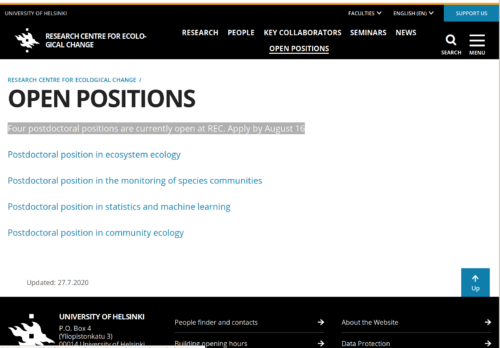
July 2020
Congratulations to Layla for a successful PhD!
PhD candidate Layla Höckerstedt successfully defended her thesis ‘Evolutionary and ecological dimensions of disease resistance’ with Prof Åsa Lankinen (SLU) as her opponent and the thesis was Passed with distinction.
Click here to access her E-thesis
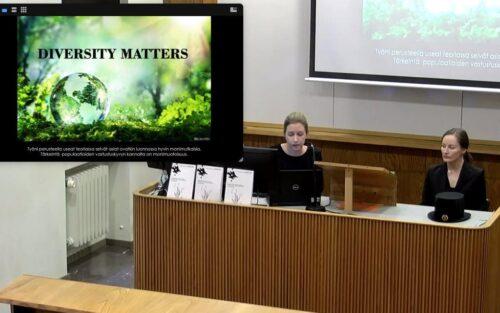
June 2020
Field research featured in the local newspaper Haldensteiner Bote
The fieldwork done in summer 2019 on the Calanda mountain was showcased in the local newspaper Haldensteiner Bote.
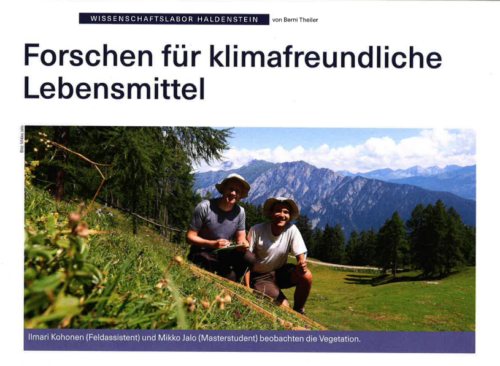
October 2019
Short video series on biodiversity
We published a series of ten short videos about environmental change and biodiversity. The episodes cover what biodiversity is, who benefits from it, who studies it, how they study it, what threatens it and what we can do about these threats.
The videos are aimed for school children between ages 11-16 and the content of the videos was brainstormed together with teachers in order to come up with a format that would suit the target audience. Click here for more information.
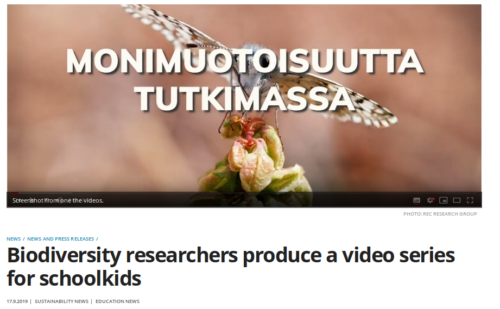
July 2019
Funding for research aiming to develop climate smart agricultural practices
Our consortium proposal ‘MULTA: Multi-benefit solutions to climate-smart agriculture’ led by Prof. Jari Lisk received funding from the Strategic Research Council (Academy of Finland).
The food system is facing a need for a systemic change to harness its significant potential to mitigate greenhouse gas emissions while producing healthy food sustainably to a growing population under changing environmental conditions.
A promising future direction is to promote management practices that enhance the ability of soils to sequester atmospheric carbon dioxide. Regenerative agriculture supports also other sustainability goals, such as soil health and productivity, biodiversity, water quality, resilience and food quality.
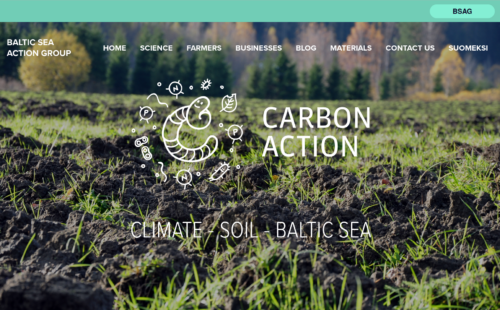
18 June 2019
Research featured
Our article ‘Variable opportunities for outcrossing result in hotspots of novel genetic variation in a pathogen metapopulation’ was featured on the eLife Digest forum.
Link to story.
Laine, A-L., Barrès, B., Numminen, E. & Sirén, J. 2019. Variable opportunities for outcrossing result in hotspots of novel genetic variation in a pathogen metapopulation. eLife 8:47091.
